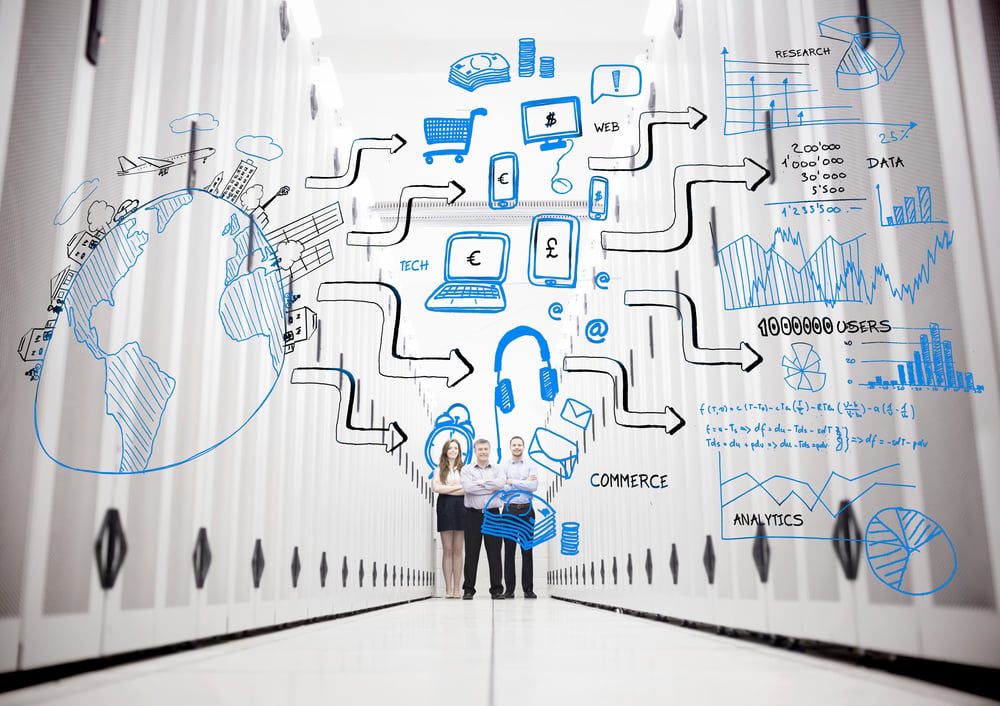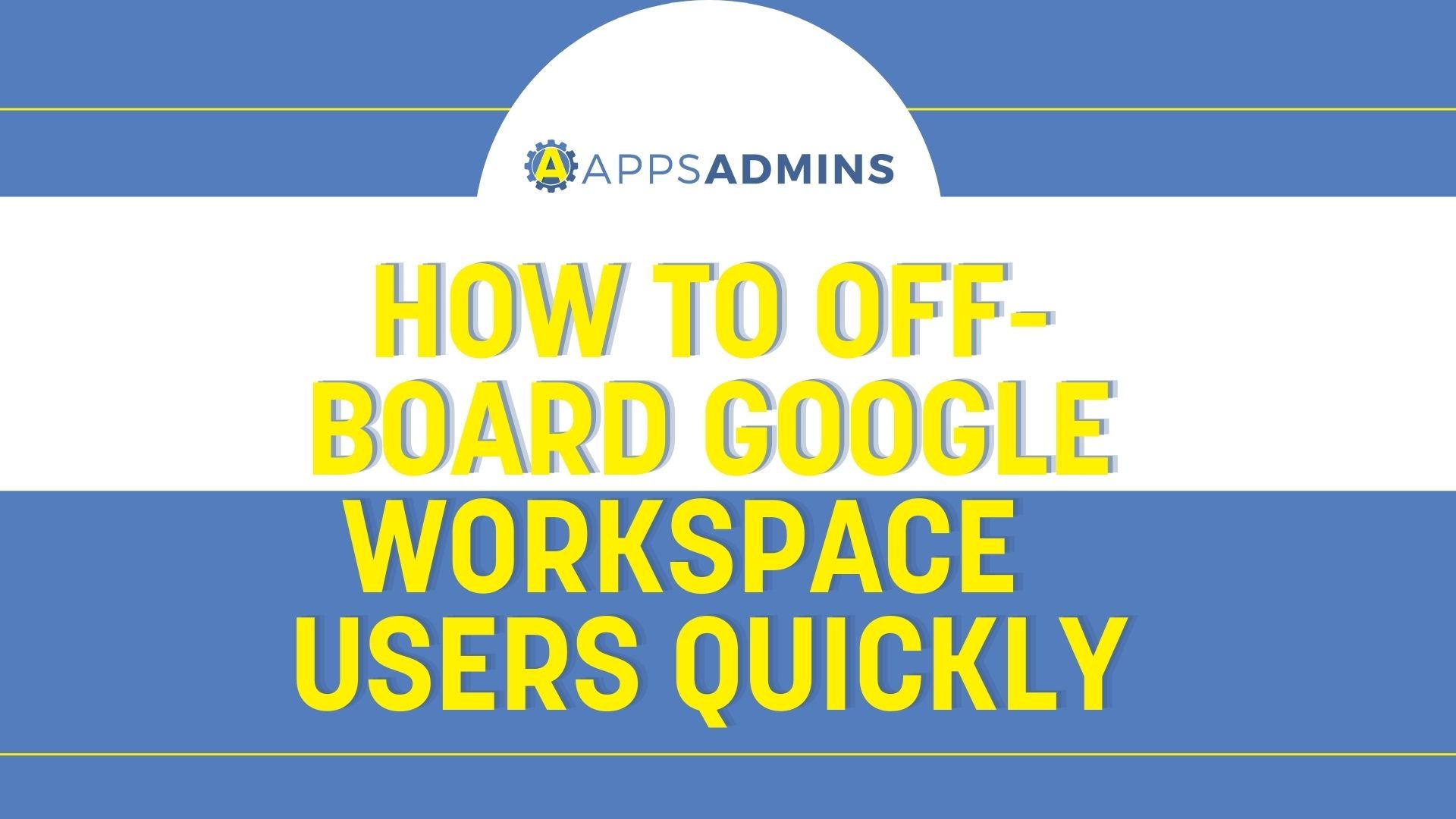G Suite Business Free for 30 Days
Sign up for a Free 30 Day Trial of G Suite Business and get Free Admin support from Google Certified Deployment Specialists.

.png) Whether it's scale, agility, or flexibility that you're looking for, the cloud can transform your business, preparing it for the ever-evolving digital world. Cloud technology offers mid-sized enterprises countless benefits by giving them the freedom they need to access data and innovation without overspending. G-Suite is just one of the platforms designed to support these businesses, by giving them a host of intelligent applications to tap into, all the way from email, to analytics. It's easy to see why 3 million businesses rely on G Suite to keep them connected.
Whether it's scale, agility, or flexibility that you're looking for, the cloud can transform your business, preparing it for the ever-evolving digital world. Cloud technology offers mid-sized enterprises countless benefits by giving them the freedom they need to access data and innovation without overspending. G-Suite is just one of the platforms designed to support these businesses, by giving them a host of intelligent applications to tap into, all the way from email, to analytics. It's easy to see why 3 million businesses rely on G Suite to keep them connected.
Of course, as wonderful as the cloud can be for delivering fantastic scale and performance, it does come with a few challenges too. For instance, apps admins need to ensure that they have absolute visibility and control over their sensitive assets when it comes to making the most of G-Suite. As innovative as Google is when it comes to offering their clients exceptional security and peace of mind, it's important to note that IT leaders still have the responsibility of auditing and evaluating their cloud practices regularly.
After all, the cloud, the online world, and the nature of data privacy are constantly changing. By auditing your G-Suite experience at least once a year (preferably more), you can make sure that your system isn't only secure, but ideally set up to suit your business.
Security in the Cloud is YOUR Responsibility As Much as Anyone Else's
Perhaps one of the biggest problems that organizations suffer from today, is that they often tell themselves that providing reliable and secure data backups in the public cloud is the responsibility of their cloud vendor. While there's a good chance that your vendor has solutions in place to protect your information, and Google constantly updates their security and control policies to give you the best experience on the cloud, admins can't simply pass the issue of privacy off to someone else and hope for the best. That's like buying a treadmill and hoping it will just get you into shape on its own.
As the team that deals with your cloud infrastructure, it's up to you to make sure that your G-Suite experience, as well as any third-party apps you use alongside it, is safe and free from potential vulnerabilities. Assuming that the issue of security rests in the hands of other vendors and providers can lead to disaster when companies frequently shrug off security issues and expect other people to deal with them. Even if someone else in your pipeline was responsible for preventing a data leakage, it's worth remembering that it's your personal brand that will face the backlash if a security or privacy problem does arise. In some cases, the damage to your brand reputation may be more than you can reasonably recover from.
The good news? There are plenty of solutions out there to help you make the most of cloud security. For instance, Coolhead Tech has there very own guide covering all the security and privacy points you need to check when you audit your system once a year. There are also plenty of other tools that are useful from an internal audit perspective too, including:
- The General Audit tool for G Suite
- Google's internal security dashboard
- CHT's G Suite Security & Privacy Checklist
- BetterCloud's G-Suite Tool
Google Security is Always Changing - Are You Ahead of the UpCurve?
One of the factors that make it so important to frequently audit your Google G-Suite security experience, is the fact that it's constantly changing. The tools that are available for companies who want to maintain a safe and private online experience grow more and more as the years go by and Google invests in a host of new technologies to support its users. It only makes sense that you'd go back and make sure that you know what you're working with. For instance, some of the more recent features delivered by Google include:
-
Security Key Enforcement: Google introduced 2-step verification to give their users additional protection when logging into their accounts. With this solution, admins can require their employees to use security keys, which are more secure when protecting against phishing attacks. Security keys plug into a laptop or mobile device directly, and recently, Google added the ability for admins to enforce security key use by restricting login completely to individuals with a key.
-
More Visibility into Potential Threats: Not so long ago, Google introduced their new "Security Center" for G-Suite, which provides customers with best practices support and security analytics. Recent additions to the center include security charts demonstrating OAuth activity, and scam threats, as well as mobile management charts that assist IT admins in determining if devices have been jailbroken, rooted, or hijacked. The system also includes ways to manage the dashboard so that you can focus on specific security elements relevant to your company.
-
Always-on mobile management: Another recent update to G Suite security comes in the form of default-on mobile management. The improved security settings automatically enable device management solutions for mobile devices, ensuring that businesses can keep endpoints safe and secure. This means that employees won't have to install profiles on their Android and iOS devices, and Admins will access new security management controls to help them watch over data from a single dashboard. There has even been an update to Cloud Identity to ensure that enterprises can manage apps, devices, and users more easily.
-
Stronger Control over Team Drives: Google's latest security update for G-Suite also includes new security controls for Team Drives intended to offer additional methods of securing highly-sensitive data. Updates will include the ability to change settings for Team Drives so that people have limited access to files, as well as an Information Rights Management menu that stops users from downloading, or printing materials without permission.
The Key Risks You Can Avoid with a G-Suite Security Audit
G Suite has officially transformed the way that companies collaborate, communicate, and work with customers. As an innovative and intuitive solution for cloud computing, G-Suite presents a number of incredible advantages, alongside risks that today's companies need to be aware of when implementing their infrastructure.
G-Suite provides organizations with a complete range of tools for working with spreadsheets, word processing, creating websites, communicating, and more. What's more, because all the data you create and collect is saved to the cloud in real-time, you don't have to worry about losing hours of work because you forget to hit the save button. Yet, despite all these benefits, without the right security benefits, your business could still crumble.
Here are just some of the key risks you might be able to avoid by simply auditing and improving your security practices once or twice each year.
-
Data Breaches and Unauthorized Access
-
Ransomware
-
Data Loss (DLP)
-
Sharing Permissions
-
Add-Ons and Third-Party Apps
There are few things more convenient than storing your files in the cloud. Solutions like Google Vault ensure that you can archive and manage your files from across your entire cloud network, including emails from G-Mail, and collaboration from Google Drive, Hangouts, and more. The cloud brings all your data together so that it's easier to monitor and manage. However, this ease of access also means that unauthorized users may have the opportunity to access sensitive data that it's important for you to protect.
For instance, common issues of cloud data storage include:
- Hacking or malware attacks
- Poor password security
- Stolen credentials (phishing scams)
- Accidental Sharing and Editing
If someone gets access to a user's Google Drive files then they can cause some serious damage by deleting and editing files, as well as accessing critical information.
Ransomware
Ransomware was easily one of the most significant security issues of 2017, and it's something that's not going away anytime soon. Much of the ransomware that exists in the modern world is "crypto-ransomware" which uses cryptography to scramble your cloud data into a format unreadable without a specific key. Because this attack is highly profitable for hackers, it's bound to be a threat to any business that stores their files in the cloud.
While ransomware can attack any device, it's worth noting that some ransomware criminals are beginning to target cloud services because of the sheer levels of data they hold onto. This could present a serious problem for anyone using G-Suite. The good news is that there are ways you can protect yourself from ransomware - whether you stay up to date with software patches and updates, or you make sure that your staff is fully informed about suspicious emails and potential sources of vulnerability.
Google Drive Sharing Business Files: Advantages and Disadvantages
Recovery
For many mid-size enterprise companies, one of the biggest advantages of G-Suite is the fact that you can save data in real-time, which means that you don't need to constantly remember to save your files or even your shared documents. However, it's important not to assume that just because you have automatic saving your files are safe. Data loss can happen commonly through user error in the cloud security world. Sometimes, automatic syncing between devices means that when files are accidentally deleted on local machines, they disappear in the cloud too.
Though G Suite provides an option to recover files that have been accidentally deleted, this opportunity will only be open for a small amount of time. If you don't jump into action quickly, your files may be removed permanently from the system. The only way to protect against this issue is to make sure that you have a third-party system in place to backup your most critical information.
Permissions
One of the things that make G-Suite so appealing to the mid-sized enterprise, is the fact that it makes collaboration and sharing among end-users simple. However, as with anything that requires careful team management, G-Suite also requires administrators to make sure that certain files are only shared with the right people. It's all-too-easy to accidentally grant access to the wrong user - particularly if you don't audit your security practices often enough.
Permissions can be a confusing thing in any business, and it's pretty common for admins to accidentally send out more permissions than necessary. For instance, you might accidentally give someone the right to delete or edit information, rather than simply giving them a read-only doc. Fortunately, there are ways that you can avoid some of the security issues that come with sharing permissions on Google and G-Suite.
One obvious option is to invest in automatic backup so that even if data is deleted, you'll have a spare copy that you can turn to in times of crisis. Another possibility is to go through your admin settings with an expert like Coolhead tech in detail to make sure that you know exactly how to use your system to ensure the highest possible level of security.
Add-ons
Finally, while there are plenty of features that make G-Suite a powerful tool for today's companies, one of the most compelling things for many organizations, is the ability to upgrade your cloud experience with Google Add-ons and third-party applications. These add-ons are a great way to provide your cloud experience with additional functionality. However, it's worth noting that they're not developed by Google - even if they can integrate natively with official Google apps.
Third-party applications can be very useful, and there are plenty of different options to choose from, all the way from Dropbox for your Gmail account, to Evernote web clipper. However, any app will also introduce a new range of security concerns to the normal use of G-Suite Business. G-Suite administrators will need to tackle these problems for data leak prevention and data loss. The apps request various permissions to your Google account, which may include the opportunity to delete or edit data, send emails on your behalf, and more.
Most of the time, the apps you download won't request access to anything maliciously, but there's always the potential there for hackers to access a loophole in some vulnerable code and gain access to your information all the same. Every app you give access to your Google cloud opens a window for hackers to get in - which is why it's so crucial to make sure that you're managing your app experience properly.
Google Cloud's G-Suite solution has a lot to offer the modern business, but it's critical to ensure that you have the right security system in place to protect your cloud development.
Together, we can make sure that every aspect of your Google infrastructure is installed and updated perfectly - for the highest level of security. What's more, with our security audits, you can ensure that you're always on the cutting edge of cloud safety.
If You are a G Suite Admin --> Please, Please, at the least, download Coolhead Tech's free comprehensive security and privacy checklist.
.jpg?width=818&name=appsadmins-svg-rules-1%20(2).jpg)







